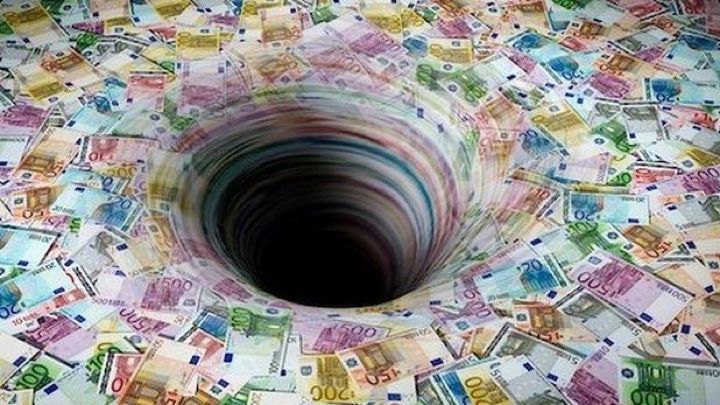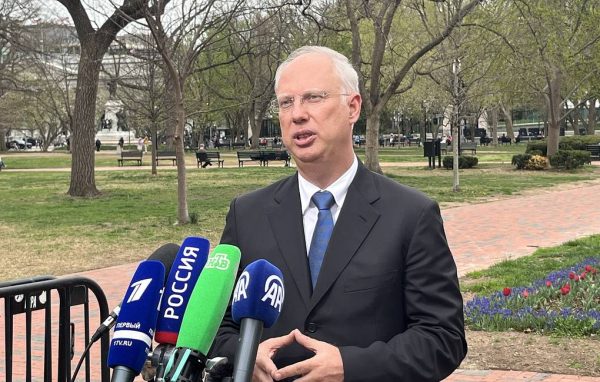
The Greek public debt seems to have “swelled” by about 50 billion euros, due to the pandemic.
The Bank of Greece emphasizes, in its interim report on Monetary Policy, that the pandemic has caused a major change in public debt calculations, which is causing changes in its profile for the coming years.
It is now estimated that in 2030 the debt / GDP ratio will be 27 points higher than the estimates made before the pandemic.
In essence, this is an additional burden of 50 billion euros. The key question, then, is whether its viability is affected, despite the fact that a debate is starting in Europe to set country limits.
Sustainability
According to the updated estimates of the Bank of Greece, the medium-term viability of the public debt remains guaranteed. However, due to reduced economic activity during the pandemic period, emergency budgetary measures
2020-22 (totaling € 37.6 billion) and additional borrowing from European resources (RRF, SURE), both public debt as a percentage of GDP and gross public financing needs have been significantly the pre-pandemic baseline forecast scenario. More specifically, the debt-to-GDP ratio is expected to reach 138% in 2030 (approximately 27 percentage points of GDP higher than pre-pandemic estimates).
At the same time, provided that cash is maintained at a high level, annual gross financing needs for the next decade will now average around 3 percentage points higher than forecast before the pandemic, but remain lower than the reference level of 15% of GDP.
According to Budget 2022, provided that the pandemic is reduced and the recovery continues, an improvement in the primary fiscal balance is foreseen according to the definition of enhanced surveillance, with a reduction in the deficit to
relation to 2021 and its formation at 1.2% of GDP. Government debt is projected to escalate to 189.6% of GDP in 2022 from 197.1% of GDP in 2021.
Favorable composition and surpluses
From the sensitivity analysis of the baseline scenario, the BoG underlines, the following key conclusions emerge: The declining dynamics of the public debt to GDP ratio is not disturbed in the medium term under adverse macroeconomic and fiscal scenarios, which is a strong indication of resilience under adverse disorders.
Read also: 20 years of euros – Greek public debt would be over 1 trillion euros, without participation in the Eurozone
This is primarily due to the favorable composition of public debt, which consists of 99% of fixed interest debt and 77% of liabilities to the formal sector, but also the long repayment period, as it has been formed in the medium-term debt relief measures.
Especially in the case of Greece, the medium-term viability of public finances is also judged – both by the markets and by the policy makers – and based on the criterion of gross financial needs. Under this criterion, the risks to sustainability under the different adverse scenarios are clearly increased, eliminating any room for relaxation of primary surplus targets.
Latest News

Τι όνειρο είδε ο Τραμπ, έχασε 5,7 δισ. το ΧΑ σε 4 ημέρες, το «16άρι» της Coca Cola, αλλάζει η Δυτ. Μακεδονία, ζωντανεύει το Ξενία Ουρανούπολης, το βιομεθάνιο της ΔΕΠΑ Εμπορίας
Τι όνειρο είδε...

Trump Tariffs Jeopardize Growth: Piraeus Chamber of Commerce
The tariffs, aimed at reducing the U.S. trade deficit, are expected to have both direct and indirect effects on the European economy

EU Condemns Trump Tariffs, Prepares to Retaliate
As tensions escalate, the EU is expected to continue negotiations with Washington while preparing for potential economic retaliation.

The Likely Impact of Trump Tariffs on Europe and Greece
Trump tariffs are expected to negatively affect economic growth in the Eurozone while Greece's exports could take a hit.

Motor Oil Results for 2024: Adjusted EBITDA of 995 mln€; Proposed Dividend of 1.4€ Per Share
Adjusted EBITDA for 2024 was down 33% yoy. The adjusted profit after tax for 2024 stood at 504 million euros, a 43% decrease from the previous year

Cost of Living: Why Greece’s 3% Inflation Is Raising Alarm
Greece appears to be in a more difficult position when it comes to price hikes, just as we enter the era of Trump’s tariffs.

Fitch Ratings Upgrades the Four Greek Systemic Banks
NBG’s upgrade reflects the bank’s ongoing improvements in its credit profile, Fitch notes in its report, including strong profitability, a reduction in non-performing exposures (NPEs), and lower credit losses

Trump to Announce Sweeping New Tariffs Wednesday, Global Retaliation Expected
With Trump's announcement just hours away, markets, businesses, and foreign governments are bracing for the fallout of one of the most aggressive shifts in U.S. trade policy in decades.

Inflation in Greece at 3.1% in March, Eurostat Reports
Average inflation in the eurozone settled at 2.2%, compared to 2.3% in February

Greece’s Unemployment Rate Drops to 8.6% in February
Despite the overall decline, unemployment remains higher among women and young people.
























![ΕΛΣΤΑΤ: Αυξήθηκε η οικοδομική δραστηριότητα κατά 15,6% το Δεκέμβριο [πίνακες]](https://www.ot.gr/wp-content/uploads/2025/03/DSC9655-2-1024x569-1-90x90.jpg)

















 Αριθμός Πιστοποίησης
Αριθμός Πιστοποίησης